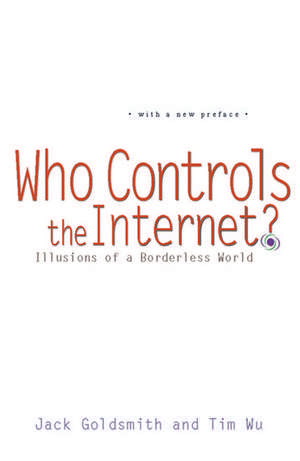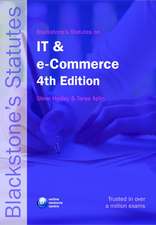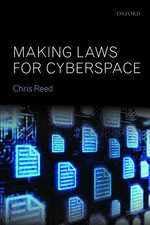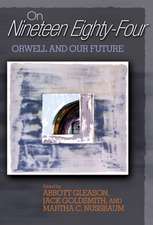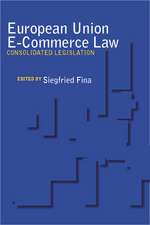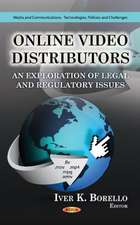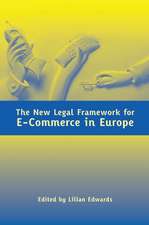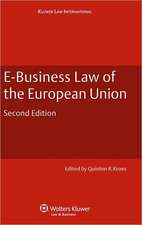Who Controls the Internet?: Illusions of a Borderless World
Autor Jack Goldsmith, Tim Wuen Limba Engleză Paperback – 17 iul 2008
| Toate formatele și edițiile | Preț | Express |
|---|---|---|
| Paperback (1) | 80.14 lei 31-37 zile | |
| Oxford University Press – 17 iul 2008 | 80.14 lei 31-37 zile | |
| Hardback (1) | 397.44 lei 31-37 zile | |
| Oxford University Press – 29 iun 2006 | 397.44 lei 31-37 zile |
Preț: 80.14 lei
Preț vechi: 89.29 lei
-10% Nou
Puncte Express: 120
Preț estimativ în valută:
15.34€ • 16.67$ • 12.89£
15.34€ • 16.67$ • 12.89£
Carte tipărită la comandă
Livrare economică 10-16 aprilie
Preluare comenzi: 021 569.72.76
Specificații
ISBN-13: 9780195340648
ISBN-10: 0195340647
Pagini: 240
Ilustrații: halftones
Dimensiuni: 158 x 233 x 16 mm
Greutate: 0.34 kg
Editura: Oxford University Press
Colecția OUP USA
Locul publicării:New York, United States
ISBN-10: 0195340647
Pagini: 240
Ilustrații: halftones
Dimensiuni: 158 x 233 x 16 mm
Greutate: 0.34 kg
Editura: Oxford University Press
Colecția OUP USA
Locul publicării:New York, United States
Recenzii
A timely look at the ways that governments make themselves felt in cyberspace. Goldsmith and Wu cover a range of controversies, from domain-name disputes to online poker and porn to political censorship. Their judgments are well worth attending.
In the 1990s the Internet was greeted as the New New Thing: It would erase national borders, give rise to communal societies that invented their own rules, undermine the power of governments. In this splendidly argued book, Jack Goldsmith and Tim Wu explain why these early assumptions were mostly wrong: The Internet turns out to illustrate the enduring importance of Old Old Things, such as law and national power and business logic. By turns provocative and colorful, this is an essential read for anyone who cares about the relationship between technology and globalization.
In the 1990s the Internet was greeted as the New New Thing: It would erase national borders, give rise to communal societies that invented their own rules, undermine the power of governments. In this splendidly argued book, Jack Goldsmith and Tim Wu explain why these early assumptions were mostly wrong: The Internet turns out to illustrate the enduring importance of Old Old Things, such as law and national power and business logic. By turns provocative and colorful, this is an essential read for anyone who cares about the relationship between technology and globalization.
